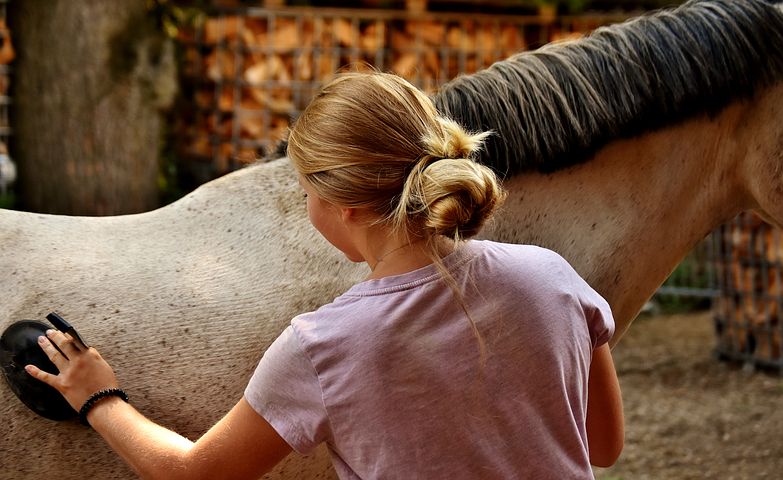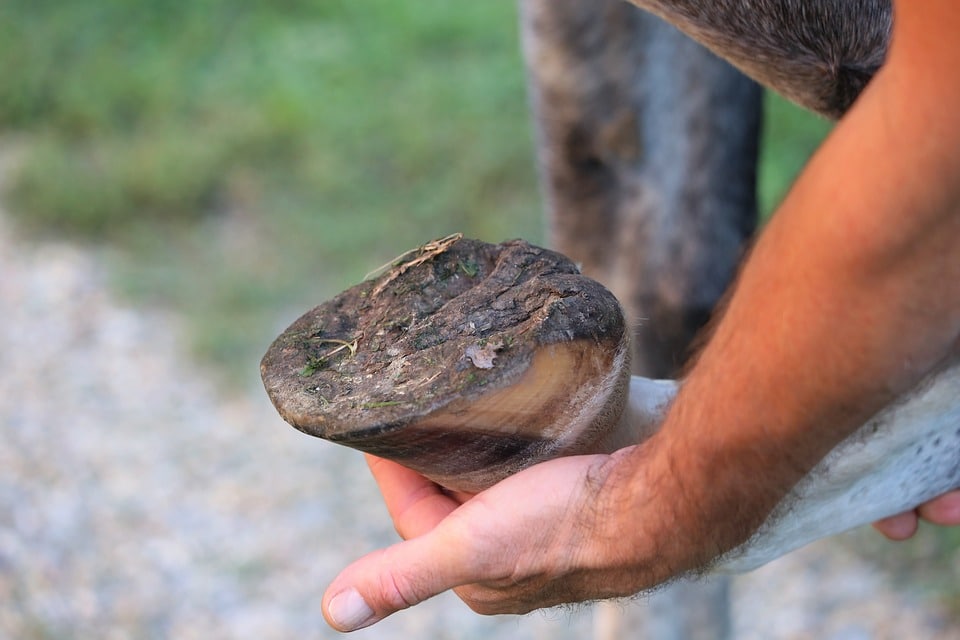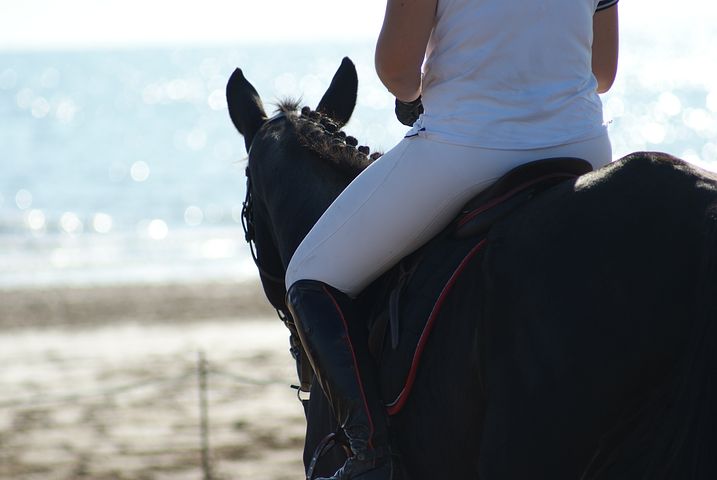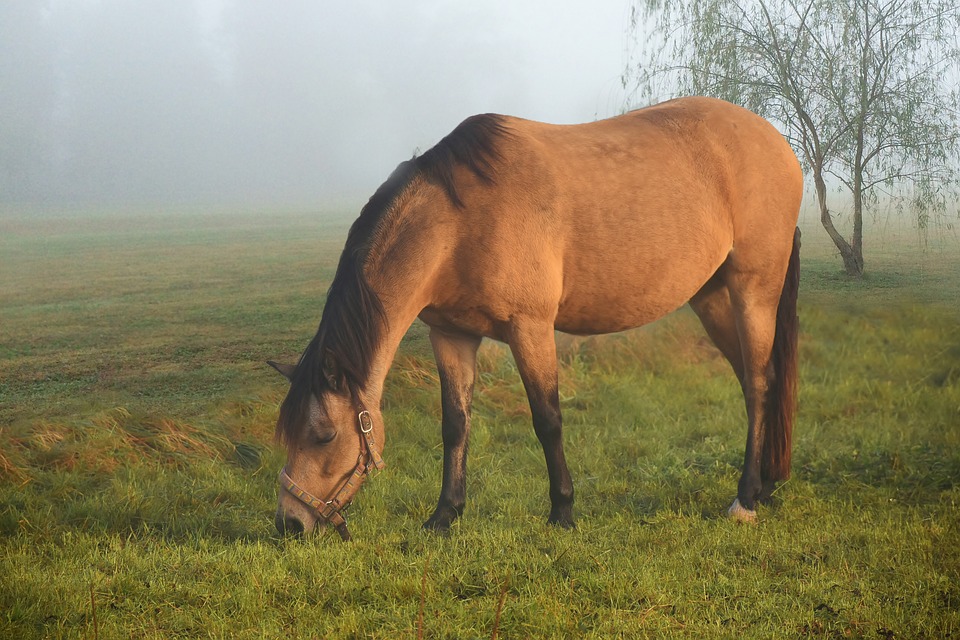Buying a horse is a big decision. There are many considerations you need to make. It is all too easy to fall in love with the first horse or pony you see. Donât rush, finding the right horse takes time. You will likely see many horses before finding the one that’s right for you. Owning a horse is an ongoing commitment and can be a serious financial and time-consuming investment. Therefore, it is important to take your time deciding.
Where to Find Horses for Sale UK
Finding horses for sale and the right horse for you can be a time-consuming business. However, by following the tips Iâve outlined below, it should help streamline the process for you and avoid any waste journeys. Below are the best ways to find horses for sale in the UK:
- Advertisements in local papers or equestrian magazines
- Private advertisements
- Horses for sale on internet web pages.
- Word-of-mouth through friends, family members or equestrian clubs
- Notice boards in local tack and feed shops
- Equine welfare charities often have horses for sale and can match a horse to a potential keeper with ease.
It may sound like a simple point but read each advert thoroughly to ensure you donât miss anything. After all, there is no point wasting time ringing owners about horses that simply arenât suitable.
How to Buy the Right Horse for You
Every horse is different and when buying a horse, it is important to choose the perfect horse for you and your requirements. No two horses are the same in type, shape or temperament, and the same is true for riders. However, finding a young horse that is perfectly suited to you can be difficult. So, how do you decide?
Consider the Advice of Your Instructor
If you are a regular rider and are taking horse riding lessons, it can be useful to get advice from your instructor. After all, your height, weight, fitness level, riding ability, and riding ambitions all play a significant part in finding the type of horse most suited to you. Therefore, having the opinion and advise of your riding instructor can be very beneficial.
Consider Your Knowledge and Riding Experience
It is important you are realistic about having a horse that suits your ability as a rider. Just as a rider looking to improve their riding skills shouldnât choose an inexperienced horse, an inexperienced rider shouldnât choose a horse with limited ability. This will make an enjoyable partnership into a potentially disappointing experience!
Donât be afraid to admit you are not an expert and that you are not the best at everything. You do not need to be an expert to own a horse, but you do need to have the sense to admit you are not. The willingness to learn and take advice is essential.
Think About Use of the Horse and Activities

Therefore, it is essential to consider a number of things, including the age, temperament, level of training, experience, and breed of the horse.
Be Realistic About the Size of the Horse
When buying a horse, it is important to be realistic about the size of the horse you require. The rider must be able to easily mount unaided from the ground. Once mounted, the riderâs feet should be no lower than the horseâs elbows. If your horse is bigger or smaller than this, it is not the right horse for you.
Be Honest About Your Finances
Buying a horse is a significant financial investment. Therefore, careful consideration should always be taken to provide a suitable living situation and standard of care. You need to meet the needs of your horse and this does require a lot from you financially. The initial purchase cost of buying a horse is minimal compared to the cost of keeping a horse. You also need to remember the longer-term on going financial commitments like feeding, worming, feet, teeth, vaccinations, bedding, livery, vets fees, competition fees and so on.
When you’re ready to start looking for your first horse, always set a budget and get advice from other trusted and knowledgeable horse owners. Consulting with a person who has good equine knowledge is a must for the novice.
Write down a list of what you desire in your horse and stick to them.
Where Will You Keep Your Horse?
There are advantages and disadvantages to owning your own land or keeping the horse at livery. Should you be lucky enough to have your own land and stabling provisions, then the cost of keeping a horse will be reduced. However, the time commitment may be increased in comparison to keeping a horse at full or part livery.
If you are going to keep the horse at a livery yard, you need to think about the type of livery, the location, its facilities, care, and the cost.
Book a Pre-Purchase Examination
When you have found the horse that you feel is the most suitable for you, I strongly recommend arranging a pre-purchase vetinary examination. This may seem costly but it could save you a lot of money and heartache in the future.
What is a Pre-Purchase Horse Examination?

Consider Drawing Up a Horse Sale Contract
Although the pre-purchase vetting certificate may identify possible concerns for the future, it is never a guarantee. Therefore, ymay want to consider a sale contract. A sale contract should state the terms and conditions the horse was bought under. You may want to include the following:
⢠The sale date and cost of the horse.
⢠The name and signature of both parties i.e. the buyer and the seller.
⢠The name of the horse, age, colour, sex and a brief description.
⢠A list of any additional equipment sold with the horse including the registration documents, flu vaccination certificate, passport, tack, rugs etc.
⢠The start date, termination date and conditions of the trial period. Trial periods can be fraught with problems for both the buyer and seller. Therefore, it’s advisable to ensure everything is covered in writing, including whose responsibility it is if the horse is ill or injured and who pays the insurance.
⢠Conditions of sale.
⢠A statement of any known âstereotypesâ, injuries or problems the horse may have.
⢠A description of the horseâs abilities and a âfit for useâ statement.
⢠A statement acknowledging that the horse will need a settling in period to adjust to its new environment.
This is purely for guidance only. Legal Advice should be sought on any documents to ensure that they are legally binding.
Questions to Ask the Seller of the Horse
Prepare yourself for the initial contact with the seller by making a list of various questions to ask over the phone. You need to do this to find out whether the horse that you are interested in is going to be suitable.
The main questions you should consider asking are:
- Why are you selling the horse?
- How old is he?
- Tell me about his temperament?
- What height is she?
- What is the cost?
- What sex is the horse?
- What colour?
- How experienced is the horse?
- Has the horse ever had any injuries or illness?
- Does the horse demonstrate any vices like weaving, crib-biting, box walking etc?
- Does the horse have any conformational faults?
- What is the horse like hacking and how does he behave in traffic when ridden alone, and when ridden in company?
- Tell me the daily routine for the horse?
- How does the horse behave with other horses, both when ridden and turned out?
- Does the horse have a passport?
- What is the horseâs breeding? Is the horse registered or eligible for registration?
- Are tack and rugs included in the price?
- Is the horse vaccinated? what is he vaccinated with? and are his vaccinations up to date?
- What is the horse like to load, catch and clip?
- How does the horse behave with the farrier and the vet?
- How long have you owned the horse? Where did you get the horse from?
- Has the horse ever suffered with laminitis or sweet itch?
- Is the horse shod?
- Is the horse in full work? When was the last time the horse was ridden?
- How does the horse behave at shows and competitions?
- Would you class the horse as a novice or an experienced ride?
Once you have your answers, you will know whether you will go to see this lovely horse or not. Tell the seller you will call them back to arrange a visit once you have had time to think about it. If you feel sure that this horse may be suitable, call the seller and arrange a visit.
View the Horse You Want to Buy
Always take an experienced person with you to view a horse, such as a BHS qualified instructor. Now this is important. Never get on any horse without seeing somebody else ride it first. Why? Because this will allow you to observe the horse better. Take every opportunity to assess the horse, ask to see the horse being hacked down the road, lunged, loaded, jumped etc.
Watch closely the horse being handled and make notes and check the general health of the horse including body condition, feet and legs. Look for any old injuries, lumps bumps or abnormalities. Do not be frightened to ask questions as some factors could be problematic.
Ride the Horse You Would Like to Buy

Having tried the horse and asked all the questions you feel appropriate do not make an instant decision, go away and discuss the viewing with your advisor.
Ask All the Seller All the Questions You Want To
Do not be afraid to contact the seller and ask more questions or to arrange another viewing. If you are not interested do not waste any more of the sellerâs time. If you think the horse is suitable ask to visit again and ride it a few more times so you can develop a feel for the horse. Remember to refer back to your list of questions that you initially asked and ensure the horse has all the requirements and qualities you wanted, again donât make rash decisions.
Give Your New Horse Time to Adjust
At last you own your own horse. For the first few weeks, your horse will spend time settling into their new environment. The first few weeks should be spent getting to know your new horse and allowing the horse to get to know you. This time is an exciting experience for many horse owners. Be patient, it will take time for trust to develop.
Need a Stable for Your New Horse?
Ensure your new companion has the perfect home waiting with a bespoke timber stable from Prime Stables. We craft high-quality, custom timber buildings that provide comfort, security, and style to meet all your equestrian needs. Get in touch today.
Don’t have your horse yet? Here’s how to prepare for his arrival.Â


